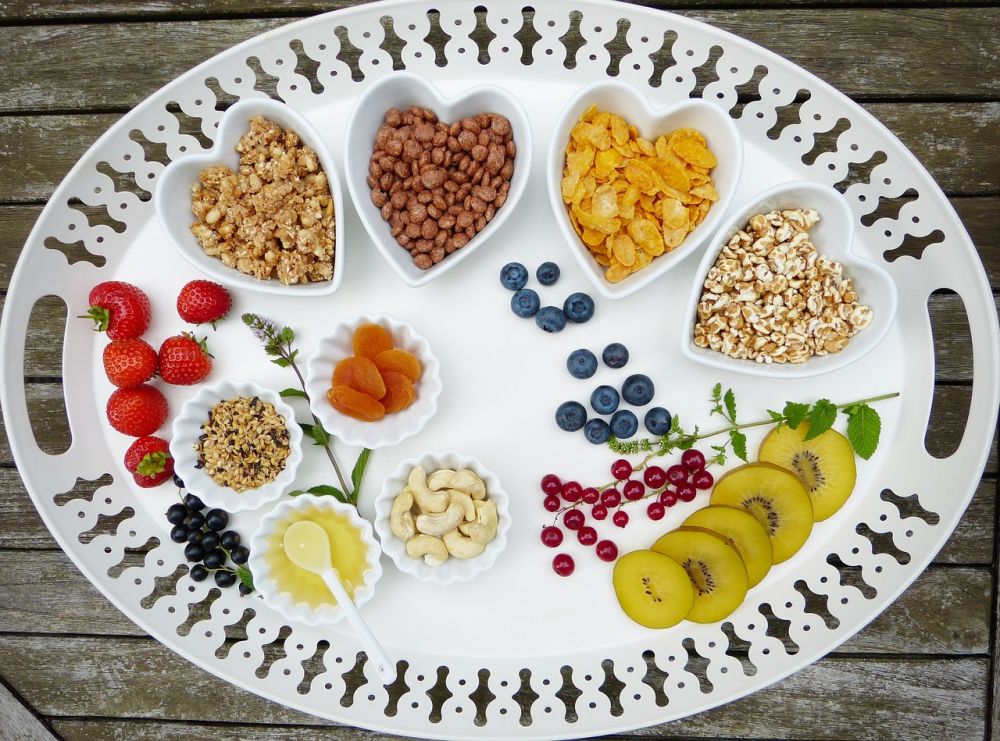PCOS Diet: A Comprehensive Guide to Managing Polycystic Ovary Syndrome

Introduction:
Polycystic ovary syndrome (PCOS) is a hormonal disorder that affects women of reproductive age. One of the key components of managing PCOS is adopting a healthy diet. In this article, we will provide a thorough overview of the PCOS diet, including its definition, different types, popular approaches, and quantitative measurements. We will also discuss the differences between various PCOS diets and explore their historical advantages and disadvantages.
What is the PCOS Diet?

The PCOS diet refers to a specific eating plan designed to manage the symptoms and improve the overall health of individuals with polycystic ovary syndrome. This diet focuses on promoting hormonal balance, controlling insulin levels, addressing weight management, and reducing inflammation. It usually involves making strategic food choices and incorporating regular exercise.
Types of PCOS Diets
Several types of PCOS diets exist, each with its own approach to managing the condition. Some popular ones include:
1. Low glycemic index (GI) diet: This diet emphasizes consuming foods with a low glycemic index, which prevents blood sugar spikes and helps regulate insulin levels.
2. Anti-inflammatory diet: This diet focuses on consuming anti-inflammatory foods, such as fruits, vegetables, whole grains, healthy fats, and lean proteins, in order to reduce inflammation in the body.
3. Mediterranean diet: This diet emphasizes whole foods and healthy fats, such as olive oil and fish, while limiting refined carbohydrates and processed foods.
4. Low-carbohydrate diet: This diet restricts the intake of carbohydrates, especially refined sugars and grains, in order to control insulin levels and manage weight.
5. Plant-based diet: This diet promotes the consumption of plant-based foods, such as fruits, vegetables, whole grains, legumes, and nuts, while limiting animal products.
6. Gluten-free diet: This diet eliminates gluten-containing foods, such as wheat, barley, and rye, in order to reduce inflammation and improve digestive health.
Quantitative Measurements of PCOS Diet
Measuring the effectiveness of the PCOS diet can be done through various quantitative measurements. These include:
1. Weight loss: Weight management plays a crucial role in managing PCOS. Monitoring body weight and calculating body mass index (BMI) can provide insights into the effectiveness of the diet.
2. Hormonal balance: Blood tests can measure hormone levels, such as testosterone, estrogen, and luteinizing hormone (LH), allowing for monitoring of hormonal balance.
3. Insulin resistance: Evaluating fasting blood glucose and insulin levels can indicate insulin resistance and the diet’s impact on improving insulin sensitivity.
4. Inflammation markers: C-reactive protein (CRP) levels in the blood can indicate inflammation. Regular measurements can help assess the diet’s effectiveness in reducing inflammation.
Differences Between PCOS Diets
Although the ultimate goal of PCOS diets is to manage symptoms, there are notable differences between them. These differences include:
1. Macronutrient composition: PCOS diets may vary in their recommended intake of macronutrients (carbohydrates, proteins, and fats). Some diets focus on specific ratios, while others emphasize the quality of these macronutrients.
2. Food restrictions: Certain PCOS diets may require restrictions on specific foods, such as gluten or dairy, while others may have more flexible guidelines.
3. Emphasis on exercise: Some PCOS diets prioritize regular exercise as an integral part of the overall approach, while others focus solely on dietary modifications.
Historical Overview of PCOS Diets’ Pros and Cons
Over the years, PCOS diets have evolved, each with its own advantages and disadvantages. Historically, some of the pros and cons are as follows:
1. Low glycemic index diet:
– Pros: Effective in regulating insulin levels and promoting weight loss.
– Cons: Can be restrictive and challenging to sustain long-term.
2. Mediterranean diet:
– Pros: Emphasizes whole foods and healthy fats, promoting heart health and weight management.
– Cons: May not specifically target PCOS symptoms and may require careful portion control.
3. Low-carbohydrate diet:
– Pros: Effective in managing insulin resistance and promoting weight loss.
– Cons: Restrictive and may result in nutrient deficiencies if not followed properly.
4. Plant-based diet:
– Pros: High in fiber and nutrients, may reduce inflammation, and promote weight loss.
– Cons: Requires careful planning to ensure adequate nutrient intake, especially for essential nutrients found in animal products.
Conclusion:
The PCOS diet is an essential component of managing polycystic ovary syndrome and improving overall health. While various types of PCOS diets exist, they all aim to achieve hormonal balance, control insulin levels, and address weight management. It is important to consider individual needs, preferences, and consult with a healthcare professional when choosing and implementing a PCOS diet. Regular quantitative measurements can help monitor the effectiveness of the diet, and understanding the historical advantages and disadvantages can guide informed decision-making. By adopting a well-rounded PCOS diet, individuals can take proactive steps toward managing their condition and improving their quality of life.

















